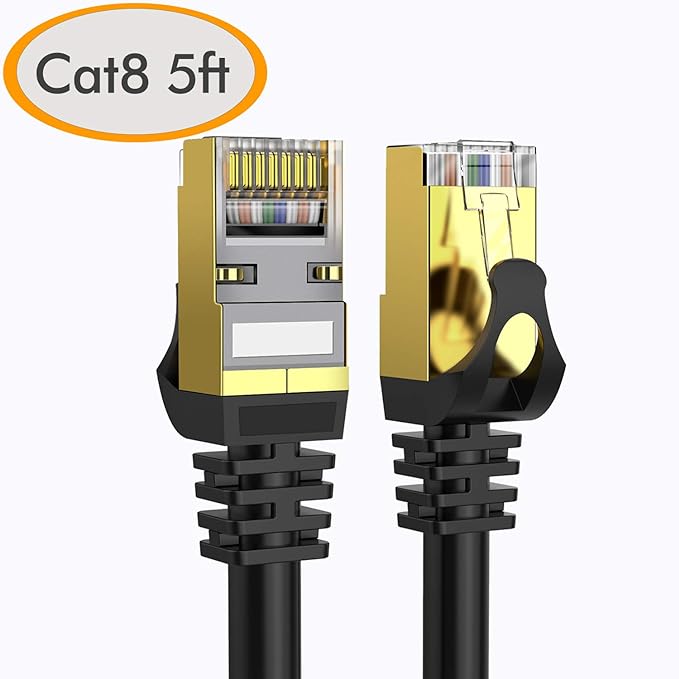WiFi dial up? G5? I am not sure what you are talking about.
As Lazy L said, the phone jacks in your house are RJ-11. They have four wires, although a phone connection only requires two - the other two are used for a second phone line, if installed. A computer ethernet cable (e.g., the CAT-8 one you show in your picture) has an RJ-45 connector and eight wires. And RJ-45 connection is not compatible with an RJ-11 one - neither electrically or physically (the plug won't physically fit into the jack, for one).
Every internet connection method requires a modem (I'm talking the connection from your house to the outside world, not connections inside your house which are usually ethernet or WiFi). This modem may be built into your computer (as is typical for older computers and dial-up connections), may be integrated into your router (lots of times this is what an ISP will provide to you), or it might be a totally separate device (what you typically find when people buy they own modems and routers rather than renting them from their ISP). There are indeed WiFi routers that have dial-up modems built into them. I have never seen one of these personally - you don't usually find them in retail stores - but I know they exist. There are different types of modems: you have your cable modems, DSL modems, fiber optic modems, dial-up modems, etc. Back in the really old days, we even had our acoustic modems (I remember using those!)
By "dial-up" could you possibly mean "DSL"? DSL is done over phone lines, just like dial-up, but they are not the same technology. Traditional dial-up still exists. You don't see it much, because very few people can tolerate the slow speeds it provides these days. A modern webpage, loaded over a dial-up connection, would require the user to have the patience of a saint.
You said "do I still need to use G5?" What is G5 in this context? I know that is a model number for a Motorola brand cellphone, and also for an LG brand cellphone. As far as networking goes, I don't know what that term means. Are you possibly meaning 5G instead? That is a standard used to move data over a cellular connection (along it's older siblings 4G, 3G, etc.) 5G is new cutting edge technology. You see it in very, very few places. You would have to live in a weird place indeed, if your choices were 5G (cutting edge) and dial-up (so old, some people here may not even know what it is). You would have missed out on about 30 years of innovation in that case.




















































